Handling Karens in Public: A Social Justice Perspective
Category: Social Issues
Mastering the Art of Handling Karens in Public
If you've ever encountered a 'Karen' in public—a person whose entitlement and disruptive behavior stir up unnecessary conflict and social injustice—you know how challenging it can be to navigate such situations. Whether you’re a socially conscious bystander, a customer service worker, or simply someone trying to maintain peace in a public setting, understanding how to effectively handle these encounters is crucial. You’ve likely searched for strategies that do more than just diffuse tension; you want insightful, actionable guidance rooted in respect, social justice, and setting clear boundaries to curb entitlement without escalating chaos. This post cuts through the clichés and knee-jerk reactions by unpacking the dynamics behind Karens' behavior, revealing practical steps that put fairness and dignity first. Our comprehensive guide is tailored for readers who desire critical cultural commentary and proven conflict management techniques that don’t sacrifice calm for confrontation. Here, you’ll find a thoughtful path to reclaim social equity in public arenas—empowering you to respond smartly and justly when entitlement threatens common decency. Keep reading if you want to handle these difficult moments with clarity, confidence, and a commitment to social fairness.
- Mastering the Art of Handling Karens in Public
- Understanding the Karen Phenomenon: Origins and Cultural Context
- Recognizing Entitlement and Its Impact in Public Spaces
- Psychological Motivations Behind Karen Behavior
- De-escalation Techniques for Public Confrontations
- When and How to Involve Authorities or Management
- Supporting Victims of Karen Disruptions: Solidarity from Bystanders and Organizations
- Legal and Ethical Considerations in Handling Karens
- Leveraging Social Awareness and Cultural Commentary
- New Norms: Encouraging Accountability and Behavior Change
- Resources and Tools for Ongoing Conflict Management
Understanding the Karen Phenomenon: Origins and Cultural Context
The 'Karen' archetype has emerged as a powerful cultural symbol representing a specific pattern of entitlement, privilege, and disruptive behavior often exhibited in public spaces. Understanding the origins of this phenomenon is essential to grasp why these encounters are about more than just individual rudeness—they reflect larger societal dynamics related to entitlement, race, class, and social justice. The term “Karen” gained traction in internet culture as a shorthand for entitled white women who weaponize their social status to escalate minor conflicts, demand special treatment, or police others’ behavior—often targeting marginalized groups under the guise of “calling out.”
At its core, the Karen phenomenon serves as a mirror to deeper issues such as:
- Systemic privilege and white entitlement – Karens often act from a place of unexamined privilege, using it to enforce unfair power dynamics in everyday situations.
- Social justice backlash – Their behavior typically surfaces as resistance to progressive movements, reflecting an unwillingness to share social space or respect others’ rights.
- Entitlement fueled by consumer culture – The expectation of exceptional service or preferential treatment is amplified in consumer-driven societies, where people feel empowered to make excessive demands.
- Cultural reinforcement through media and memes – The viral spread of Karen stories and memes both exposes and amplifies the behavior, creating a feedback loop that highlights ongoing societal tensions.
By framing the Karen archetype within these larger contexts, we see her behavior as symptomatic of broader societal struggles over fairness, respect, and justice—not just isolated incidents of bad manners. This insight allows us to approach interactions with Karens from a place of clarity and strategic awareness, recognizing that addressing entitlement is intertwined with challenging systemic injustice.
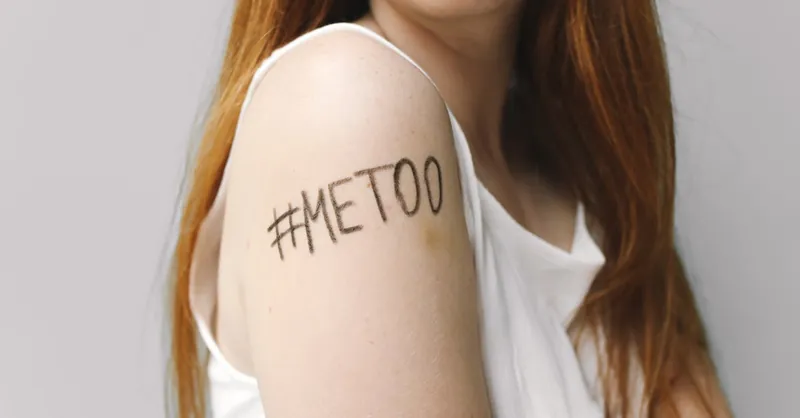
Image courtesy of Polina Tankilevitch
Recognizing Entitlement and Its Impact in Public Spaces
Entitlement behavior is at the heart of typical Karen encounters, and recognizing its common triggers and signs is crucial for preventing escalation and promoting fairness in public spaces. Karens often display an ingrained sense of unearned privilege, expecting immediate compliance with their demands regardless of context. This entitlement can manifest through loud complaints, insisting on special treatment, or overriding social norms—actions that disrupt the harmony of public environments and frequently generate conflict.
Common Triggers of Entitlement Behavior
- Perceived service failures – Minor inconveniences such as slow service, unavailable items, or unclear policies often provoke disproportionate reactions, as Karens interpret these as personal affronts to their status.
- Challenges to authority or control – When a Karens’ dominance or request is questioned—by employees, other customers, or bystanders—they tend to escalate the situation to reassert control.
- Encounters with marginalized groups – Entitlement often intertwines with racial and social biases, prompting Karens to police or accuse individuals from marginalized communities under the guise of enforcing rules or “doing right.”
- Interruption of consumer expectations – Karens frequently respond exceptionally poorly to any disruption in their expected consumer experience, which they deem a breach of their rights as a customer.
Key Signs of Entitlement Behavior
- Interrupting conversations or proceedings to loudly assert demands
- Refusal to accept “no” as an answer, often leading to excessive argumentation
- Using status markers (race, age, gender, socioeconomic cues) to intimidate or shame others
- Disregarding time and space boundaries, such as cutting lines or monopolizing staff attention
- Escalating minor issues into public confrontations or threats
Understanding these triggers and signs not only exposes how entitlement behavior fuels unfair treatment and social conflict, but also equips you to respond thoughtfully. By identifying entitlement early, you can implement strategies that calmly set boundaries and promote equitable treatment, reducing the risk that Karens’ disruptive demands will lead to broader social injustice and unnecessary distress in public settings.

Image courtesy of Mikhail Nilov
Psychological Motivations Behind Karen Behavior
To effectively handle Karens in public, it’s vital to delve into the psychological underpinnings that drive their behavior. Understanding these motivations reveals how deep-seated fears, insecurities, and societal power dynamics fuel entitlement and aggression, transforming seemingly irrational actions into predictable patterns rooted in identity and control.
Core Psychological Drivers
-
Fear of Losing Social Status
Many Karens exhibit behavior stemming from an acute anxiety about losing their perceived social dominance. Their confrontations are often attempts to reassert control in an environment where they feel their privileged status—often linked to race, socioeconomic class, or gender—is being challenged or eroded. -
Insecurity Masked by Aggression
Beneath the surface of entitlement lies a defensive posture fueled by personal insecurities. Karens may feel powerless or vulnerable in other areas of their lives, leading them to compensate by dominating public spaces through loud demands and confrontational tactics. -
Need for Control and Certainty
Entitlement behavior is a reaction to ambiguity or disruption in routine. Karens seek to impose order on uncertain situations by enforcing rules rigidly or escalating complaints, reflecting a deeper need for predictability and control amidst social change. -
Internalized Societal Privilege and Bias
The Karen phenomenon is inseparable from systemic privilege, where unconscious biases and societal conditioning bolster a sense of superiority. This internalization reinforces their justification for demanding special treatment and policing others, especially marginalized groups.
Societal Power Dynamics at Play
- Karens often operate within an unfair social structure that normalizes their sense of entitlement, making them unwilling to recognize or cede power.
- Their behavior can be viewed as a manifestation of resistance to progressive social justice movements, as they cling to perceived hierarchies threatened by calls for equality.
- This dynamic perpetuates cycles of public injustice and microaggressions, where entitlement not only inconveniences but also marginalizes vulnerable populations.
By appreciating these psychological and societal factors, readers can approach Karen encounters with empathy balanced by firmness—knowing that their disruptive actions are not random but deeply intertwined with fears of losing power and status. This insight empowers you to respond in ways that de-escalate conflict, challenge entitlement, and uphold fairness without fueling further division.

Image courtesy of Mikhail Nilov
De-escalation Techniques for Public Confrontations
When faced with a Karen’s entitlement-fueled confrontation in public, the goal is to calm heated situations without enabling injustice or reinforcing her sense of power. Effective de-escalation is a nuanced balance between respectful communication, clear boundary-setting, and mindful action that preserves social equity. Reacting impulsively or with aggression often escalates conflicts, making it essential to adopt strategies that defuse tension while maintaining control of the interaction.
Practical Steps to Calm Heated Situations
-
Stay Calm and Centered
Your own emotional regulation is the foundation of de-escalation. Take deep breaths and maintain neutral body language to signal that you’re composed and not a threat or opponent. -
Use Respectful but Firm Language
Address the Karen politely but with clear firmness. Acknowledge their concern briefly (“I understand this is frustrating”), then redirect the conversation toward the facts and policy without debating entitlement. -
Set Boundaries Early
Assert your limits respectfully but unapologetically. For example: - “I’m happy to help within the store’s policy.”
-
“We can’t make exceptions, but I’m here to assist you in any other way.”
Clear boundaries disarm entitlement by defining what is socially acceptable and what isn’t. -
Avoid Power Struggles
Do not engage in personal attacks or allow the situation to become a contest of wills. Instead, maintain a neutral tone and avoid raising your voice, which only fuels escalation. -
Redirect Attention to Authority or Policy
If the Karen refuses to accept “no,” calmly reinforce your position by referring to established rules, management policies, or legal standards, emphasizing fairness rather than personal judgment. -
Enlist Support If Needed
When possible, involve management or a responsible authority figure to validate boundaries and share responsibility for enforcing rules, which helps depersonalize conflict. -
Know When to Disengage
If the situation continues to escalate despite your efforts, prioritize your safety and well-being. Politely excuse yourself or request assistance—escalation is never worth risking harm or prolonged distress.
Why These Techniques Work
These de-escalation strategies do not reward entitlement or allow injustice to flourish. Instead, they:
- Maintain respect for all parties involved, preventing further alienation or defensiveness.
- Set clear limits that challenge unwarranted demands without provoking retaliation.
- Center fairness and policy in the conversation, rejecting favoritism or exceptionalism.
- Protect social equity by refusing to let entitlement override rules designed for everyone’s benefit.
By mastering these techniques, you become an agent of calm and fairness in public spaces, effectively neutralizing entitlement behaviors before they spiral into larger injustices or community discord. Handling Karens with this thoughtful approach not only restores peace but also reinforces a culture of respect and shared social responsibility.
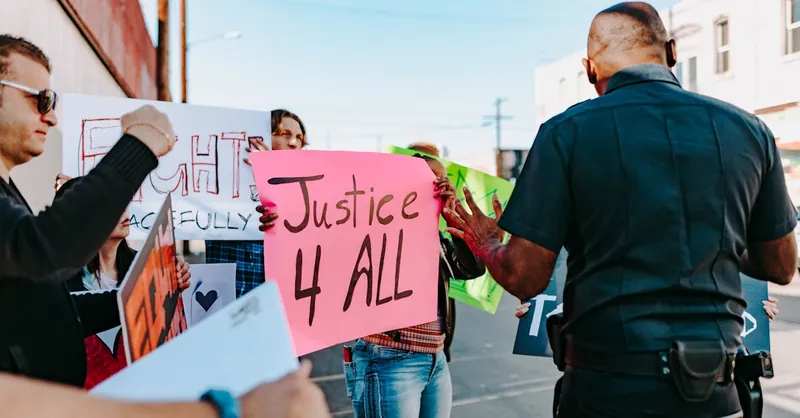
Image courtesy of RDNE Stock project
When and How to Involve Authorities or Management
Navigating encounters with Karens often requires knowing when to escalate the situation by involving authorities such as security personnel, management, or law enforcement. Understanding the appropriate timing and method for intervention is crucial to ensure the conflict is resolved effectively and fairly, without unnecessarily amplifying tensions or endangering anyone involved. Properly discerning when external help is necessary safeguards the social environment, protects vulnerable parties, and upholds public order.
Guidelines for Deciding When to Involve Management or Security
- When the Karen’s behavior violates established rules or policies — For example, persistent harassment of staff or other customers, refusal to comply with safety regulations (mask mandates, fire codes), or attempts to forcibly override store policies are all clear signs that managerial intervention is warranted.
- If verbal de-escalation fails and the situation escalates — When repeated calm and respectful communication does not diffuse entitlement-fueled aggression, and the Karen persists in verbal abuse, threats, or shouting, calling on management or security helps shift responsibility and control to authorized personnel.
- In the presence of discriminatory or unlawful acts — Should the Karen engage in racial profiling, hate speech, or targeted harassment, it is critical to involve supervisors or law enforcement to ensure zero tolerance for injustice and uphold legal compliance.
- If physical threats or bodily harm are imminent or occurring — Any hint of physical aggression requires immediate intervention by trained security staff or police to protect everyone’s safety.
Best Practices for Engaging Authorities or Management
- Remain calm and factual when requesting assistance. Clearly describe the Karen’s specific behavior and its impact without exaggeration to help authorities assess and respond appropriately.
- Document key incidents when possible, such as recording dates, times, or taking discreet notes. This can aid management in reviewing the situation and enforcing accountability.
- Do not physically intervene unless trained or if there is imminent danger. Allow security or law enforcement to manage confrontation safely and professionally.
- Communicate with other bystanders or staff who may also witness the incident, encouraging a collective approach to support fair treatment and discourage further entitlement-based disruptions.
Why Proper Intervention Matters
Involving authorities or management at the right moment serves multiple social justice functions:
- It reinforces communal boundaries and affirms that abusive entitlement will not be tolerated.
- Supports frontline workers and vulnerable targets by delegating enforcement to appropriate figures of authority.
- Helps to maintain public safety and prevents conflicts from escalating into physical altercations.
- Sends a clear message that social equity and fairness are prioritized in shared public spaces, deterring future disruptive entitlement behavior.
By mastering the art of strategic intervention, you ensure that conflicts with Karens are resolved efficiently and justly—safeguarding both individual dignity and the broader social fabric.

Image courtesy of Ron Lach
Supporting Victims of Karen Disruptions: Solidarity from Bystanders and Organizations
When a Karen’s entitlement-fueled behavior targets individuals—especially those from marginalized communities—it not only disrupts public order but also inflicts emotional harm and perpetuates social injustice. Supporting victims of Karen disruptions is essential to fostering environments of fairness, respect, and social equity. Both bystanders and organizations play a crucial role in standing in solidarity with those targeted, amplifying voices calling for justice, and creating protective social frameworks that counteract entitlement and abuse.
How Bystanders Can Stand in Solidarity
-
Intervene Safely and Thoughtfully
Bystanders who witness Karen behavior should assess the situation carefully, prioritizing safety while signaling support for the targeted individual. Simple acts like making eye contact with the victim, verbally affirming their dignity, or calmly addressing the Karen’s unacceptable behavior can defuse tension and empower the victim. -
Amplify Marginalized Voices
Standing in solidarity means more than quiet support; it involves actively amplifying the concerns and experiences of those targeted. Sharing accurate accounts on social media, writing to organizational leadership, or advocating for systemic change helps expose entitlement-driven injustice and mobilizes wider community awareness. -
Avoid Enabling Entitlement
Bystanders should resist the urge to appease Karens out of discomfort or a desire to “keep the peace.” Instead, challenge unfair behavior by setting social norms that visibly reject entitlement, encouraging others to do the same.
Organizational Roles in Supporting Victims and Upholding Fairness
-
Implement Clear Anti-Discrimination Policies
Workplaces, retail stores, and public venues must establish and enforce policies that explicitly prohibit entitlement-related harassment and discrimination, including incidents often orchestrated by Karens. Robust policies send a strong message that abusive entitlement behaviors will not be tolerated. -
Provide Support Resources for Targets
Organizations should offer access to counseling, mediation, or complaint channels that empower victims to seek remediation without fear of retaliation. Equipping staff with training on handling entitlement-based harassment ensures a consistent and just response. -
Foster Inclusive and Respectful Public Spaces
By prioritizing diversity, equity, and inclusion initiatives, organizations help cultivate environments where entitlement is less likely to thrive and where victims of Karen disruptions feel safe, valued, and supported. -
Engage in Community Education and Awareness Campaigns
Promoting awareness about entitlement and its social impacts through workshops, signage, or digital outreach encourages collective responsibility. Educational efforts highlight the link between Karens’ behavior and systemic injustice, motivating bystanders and community members to act proactively.
By taking collective, intentional action that uplifts victims and confronts entitlement behavior head-on, both individuals and organizations advance social justice goals. This solidarity not only mitigates the immediate harms caused by Karen disruptions but also builds resilient public spaces anchored in fairness, dignity, and mutual respect—ultimately fostering a culture that refuses to tolerate entitlement-driven injustice.
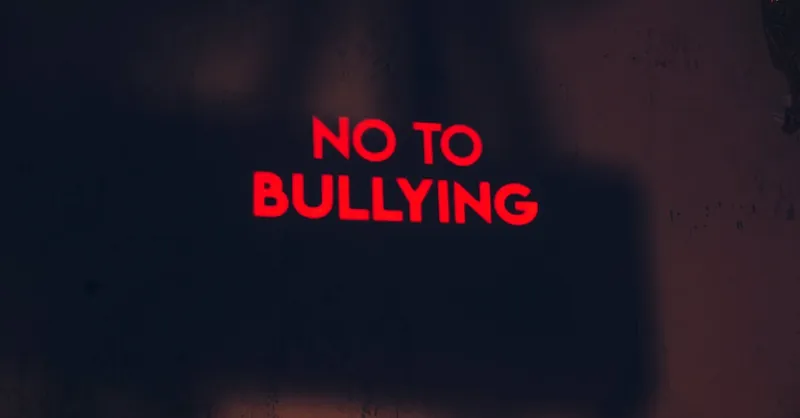
Image courtesy of Nothing Ahead
Legal and Ethical Considerations in Handling Karens
When dealing with entitlement-driven conflicts involving Karens in public, understanding your legal rights and ethical responsibilities is crucial to navigating these situations effectively without crossing boundaries or escalating tensions. While it’s important to set firm limits against disruptive behavior, you must also respect the rule of law and uphold ethical standards that protect everyone’s dignity and safety.
Knowing Your Legal Rights and Boundaries
-
Right to Personal Safety and Peaceful Environment
You have the legal right to maintain a safe and non-hostile environment for yourself and others. If a Karen’s behavior crosses into harassment, threats, or intimidation, you may seek help from authorities or pursue legal action if necessary. -
Avoiding Defamation and False Accusations
While it is valid to call out entitlement and unfair behavior, publicly accusing someone without evidence can risk defamation claims. It’s wise to focus on documented facts and observed conduct rather than assumptions about intent or character when addressing or reporting Karen behavior. -
Legal Limits on Intervening
Ethical intervention means avoiding physical confrontation and respecting boundaries. Use verbal de-escalation and seek help rather than risking assault claims by physically restraining or detaining a Karen, except in jurisdictions where citizen’s arrest laws clearly apply to unlawful acts you witness. -
Anti-Discrimination and Civil Rights Laws
Many incidents involving Karens intersect with discrimination or civil rights violations—particularly when marginalized groups are targeted. Know your rights under local anti-discrimination statutes and support victims in invoking these protections when entitlement behavior turns discriminatory or abusive.
Ethical Approaches to Navigating Entitlement Conflicts
-
Prioritize Nonviolence and Respect
Ethical handling requires treating all parties with respect while clearly opposing entitlement and injustice. This balance helps avoid perpetuating cycles of hostility or reinforcing social hierarchies through retaliatory behavior. -
Maintain Confidentiality and Privacy
When addressing or reporting Karen incidents, respect the privacy of those involved. Share information only with those necessary for resolution and avoid public shaming that can escalate conflict or harm reputations unfairly. -
Promote Accountability Without Stigmatization
Holding entitlement behavior accountable should focus on actions and systemic patterns rather than personal attacks. This approach fosters social change by targeting unjust conduct without alienating individuals or entrenching divisions. -
Champion Fairness and Equity
Ethical responses emphasize social justice principles, ensuring that responses do not reinforce privilege or bias. Support equitable treatment by amplifying marginalized voices and demanding consistent enforcement of rules and policies.
By grounding your approach to Karens in clear legal understanding and ethical intentionality, you empower yourself and your community to manage entitlement conflicts justly and safely. This knowledge not only safeguards your rights but also contributes to cultivating public spaces where fairness and respect are non-negotiable norms.
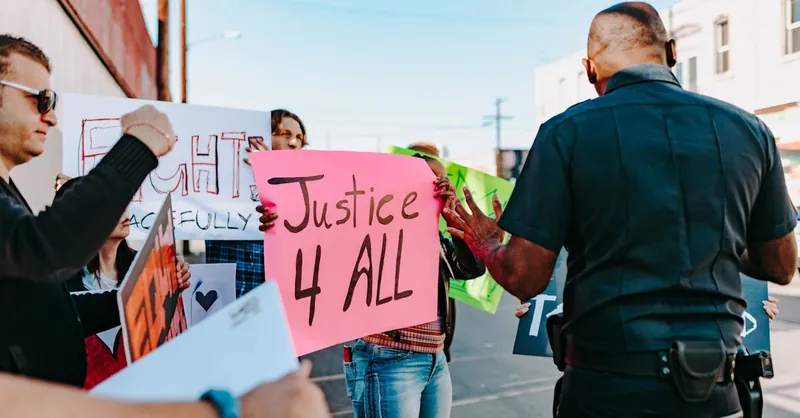
Image courtesy of RDNE Stock project
Leveraging Social Awareness and Cultural Commentary
Addressing Karen behavior in public spaces requires more than just momentary conflict management—it calls for long-term cultural change through education and discourse that disarms entitlement at its roots. By leveraging social awareness and engaging in thoughtful cultural commentary, communities can challenge the underlying systems that nurture entitlement and normalize unjust conduct. This approach transforms isolated confrontations into collective opportunities for growth, encouraging everyone to recognize and reject entitlement-fueled injustices before they escalate.
The Role of Education in Combating Entitlement
-
Raising Awareness About Systemic Privilege
Educating the public about how social structures perpetuate entitlement—especially through lenses of race, class, and gender—empowers individuals to identify Karen behaviors as symptoms of wider inequality rather than mere rudeness. Awareness campaigns, workshops, and community dialogues can illuminate these connections, fostering empathy and reducing tolerance for entitlement. -
Promoting Critical Media Literacy
As memes and viral videos often sensationalize Karens, it’s crucial to cultivate media literacy that contextualizes these portrayals without stigmatizing individuals. Understanding the nuances between satire, stereotype, and real social harm aligns public perception with social justice values, guiding responsible conversations. -
Encouraging Inclusive Conversations
Creating safe spaces for intercultural discourse allows communities to unpack entitlement dynamics openly. Through forums, panel discussions, and educational content, participants learn to recognize their own biases, understand marginalized perspectives, and build interpersonal accountability.
Cultural Commentary as a Tool for Social Influence
-
Challenging Normalization of Entitlement
Thoughtful commentary—whether through articles, podcasts, or social media—serves to de-normalize entitlement behaviors, demonstrating their impact on social equity and public wellbeing. By exposing the harmful consequences of unchecked entitlement, cultural critiques encourage societal shifts toward collective respect and fairness. -
Amplifying Marginalized Voices
Centering the experiences of those targeted by Karens in cultural narratives ensures that discourse reflects lived realities rather than dismissive stereotypes. This inclusion strengthens calls for systemic change and highlights the intersection of entitlement with broader issues like racism and classism. -
Fostering Long-Term Behavioral Change
Sustained engagement with these topics encourages individuals to reflect on personal and social responsibility, moving beyond reactive confrontation to proactive prevention. When entitlement culture is challenged publicly and persistently, the behaviors that fuel Karen incidents lose their social power.
By embedding handling Karens within a wider framework of social awareness and cultural education, this strategy not only addresses immediate conflicts but also contributes to dismantling the entitlement mindset that underpins them. Empowered through knowledge and discourse, communities become resilient against injustice—transforming public spaces into arenas of true fairness and respect.

Image courtesy of Tara Winstead
New Norms: Encouraging Accountability and Behavior Change
To truly reduce the prevalence of Karen-like entitlement in public spaces, it is crucial to foster a culture of social accountability and proactive behavior change. Promoting new norms that emphasize responsibility, respect, and equity helps curtail the cycle of entitlement by making it clear that such disruptive attitudes are socially unacceptable and have consequences. Encouraging accountability not only empowers individuals to challenge entitlement when they witness it, but also motivates those prone to Karen-like behavior to reflect and adjust their actions, transforming public interactions for the better.
Strategies for Promoting Social Accountability
-
Normalize Calling Out Entitlement Respectfully
Encourage bystanders, employees, and community members to address entitlement behaviors openly but respectfully. When entitlement is routinely challenged through calm yet firm responses, it loses its social acceptability and discourages repeated incidents. -
Implement Clear and Consistent Consequences
Whether in workplace environments, retail, or public venues, establishing consistent consequences for entitlement-based disruptions—such as warnings, removal, or bans—communicates that entitlement will not be tolerated. Transparency in enforcement fosters fairness and reinforces behavioral expectations. -
Promote Reflective Dialogue and Restorative Practices
When feasible, creating opportunities for individuals exhibiting Karen-like behaviors to engage in restorative conversations can encourage self-awareness and empathy. This approach moves beyond punishment by focusing on the impact of entitlement on others and fostering lasting behavior change. -
Leverage Community-Based Accountability Groups
Encouraging local groups, neighborhood associations, or social organizations to adopt accountability frameworks strengthens collective norms against entitlement. Peer support and public commitments to respectful conduct raise the stakes for those considering disruptive behavior. -
Use Educational Campaigns to Reinforce Norms
Regular awareness campaigns and training sessions that highlight the harms of entitlement and model appropriate social behaviors empower individuals with both knowledge and motivation to uphold new communal standards.
Cultivating a Culture That Rejects Entitlement
Building new social norms requires consistent effort across multiple levels—from individual interactions to institutional policies—all aimed at reducing entitlement-driven injustice. By fostering an environment where entitlement is not silently endured but actively challenged, communities create safer, fairer public spaces. This collective accountability not only discourages Karen-like attitudes but also promotes inclusive social behavior anchored in respect, equity, and shared responsibility—the essential foundations for overcoming entitlement and building stronger, more just public realms.

Image courtesy of RDNE Stock project
Resources and Tools for Ongoing Conflict Management
Equipping yourself with the right resources and tools is essential for managing daily encounters with Karens effectively and maintaining social fairness in public spaces. Beyond reactive strategies, ongoing education and community engagement provide a strong foundation to recognize, de-escalate, and prevent entitlement-driven disruptions with confidence and clarity. Below are curated recommendations for continued learning and support to help you navigate these challenging interactions while championing justice and equity.
Recommended Readings for Deeper Understanding
-
“So You Want to Talk About Race” by Ijeoma Oluo
This book offers crucial insights on systemic privilege and racial dynamics that often underlie Karen behavior, helping readers develop a nuanced perspective on entitlement and social justice. -
“The Art of De-Escalation: How to Handle Conflict and Navigate Difficult Conversations” by Michael D. Smith
A practical guide to mastering calm communication techniques that can defuse tense public confrontations without compromising fairness. -
“White Fragility” by Robin DiAngelo
Explores the defensive responses that often fuel entitlement from a racialized lens, illuminating ways to understand and counteract Karen-like attitudes in society. -
Academic Articles on Microaggressions and Power Dynamics
Engaging with scholarly research sharpens awareness of how everyday entitlement behaviors contribute to broader patterns of social injustice.
Community Networks and Support Systems
-
Local Social Justice and Anti-Discrimination Groups
Joining community organizations focused on equity provides not only solidarity but also practical tools for intervening in public entitlement incidents. -
Online Forums and Social Media Groups
Platforms like Reddit’s r/socialjustice or Facebook groups dedicated to public advocacy allow real-time sharing of experiences, advice, and de-escalation strategies. -
Workplace and Retail Employee Networks
Many industries have peer support groups that offer training and emotional support for frontline workers frequently exposed to entitlement behavior.
Training Opportunities to Build Conflict Management Skills
-
Conflict Resolution Workshops
Look for local or virtual workshops that emphasize nonviolent communication, boundary setting, and cultural competency—all vital skills when handling Karens constructively. -
Implicit Bias and Diversity Training
These programs deepen your understanding of societal privilege and help cultivate empathy and equity-centered responses to entitlement behavior. -
Crisis Intervention and Safety Training
For those in roles with higher exposure to volatile encounters, specialized training teaches how to manage escalation safely and effectively.
By proactively engaging with these resources and tools, you enhance your ability to identify entitlement early, respond calmly, and foster public environments that resist injustice and disrespect. Continuous learning and community connection transform conflict management from a reactive burden into a proactive social practice—empowering you to stand firm against Karen disruptions while promoting lasting fairness and dignity for all.
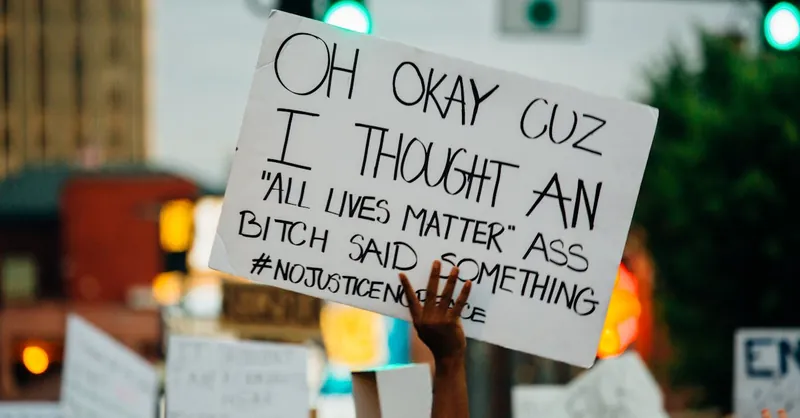
Image courtesy of Kelly
